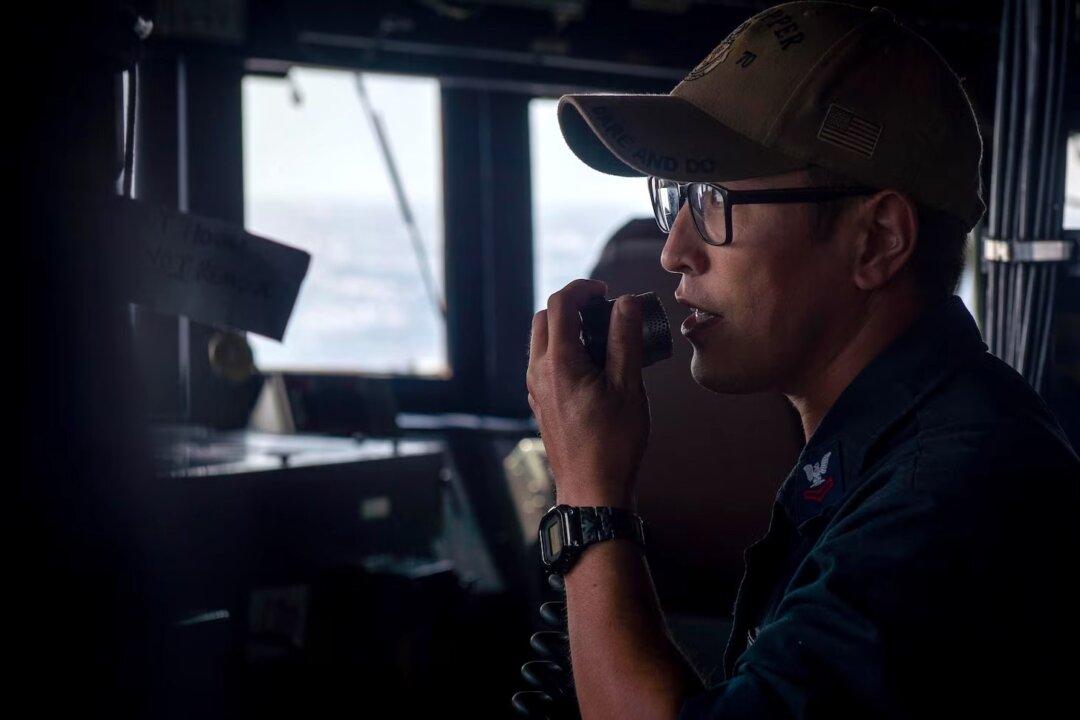A U.S. warship at the center of a dispute with the Chinese military in the South China Sea over the weekend was obeying international law, a U.S. Navy spokesperson says.
According to a Nov. 26 report, the Chinese People’s Liberation Army Southern Theatre Command reportedly claimed on its WeChat social media account that its naval and air forces were deployed to “track, monitor, and warn away” a U.S. destroyer.





